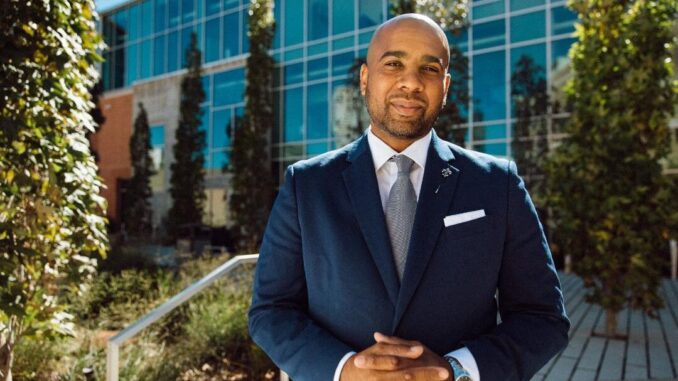
NEW ORLEANS — Patrick Young spent nearly 14 years in prison — and when he got out, he dedicated himself to a cause: helping ex-inmates function on the outside.
As a young man, Young decided to avenge his brother’s murder. And he paid for his crime. Upon release, he founded SharpMen Nola, a New Orleans, Louisiana, nonprofit that has provided suits or uniforms to more than 700 potentially hirable ex-convicts, returning military personnel and homeless men in New Orleans and the surrounding areas.
Understanding how difficult it is to reenter the workforce without being properly groomed, Young not only gifts attire, but helps these men prepare for the interview process. Young, who believes in second chances, has participated in prison reform panels to have unreasonable restrictions removed. He is also releasing his first book this year — “A Way Up: Economic Development Post Incarceration”— and is currently serving as the manager of a gun-violence prevention program in the Crescent City.
Zenger News catches up with the man responsible for changing so many lives in New Orleans by offering a second chance to men desperate for a helping hand.
Percy Crawford interviewed Patrick Young for Zenger News.
Zenger News: How is everything going?
Patrick Young: It’s great! Just trying to survive in South Central while drinking your juice in the hood (laughing).
Zenger: Love that movie! While the pandemic slowed some people down, it seems like you sped up. You have been a busy man.
Young: It’s one of those situations where it’s been crunch time. Trying to take care of stuff in spite of what’s going on outside. Just making sure we provide opportunities for men overcoming the barriers put in place. That’s important. Even with a situation like the pandemic, we still have opportunities where people can go to work. But if you don’t have the proper uniform, that presents a barrier to the employment process. We have been working nonstop — juvenile facilities, people recently released, with other nonprofits — to make sure those guys get those opportunities. Uniforms, shoes, we get whatever clothing needed.
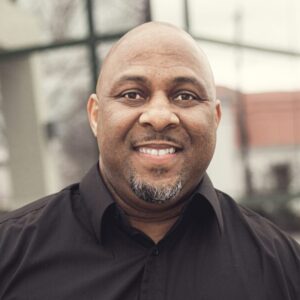
Zenger: And that’s through your nonprofit organization SharpMen New Orleans. Tell us about the services it offers.
Young: SharpMen. Dress for Success has been around for over 20 years. And it provides professional attire for women. In the South, I’m the only provider for men. SharpMen New Orleans was started about two years ago. I was working in workforce development at the time for the business alliance, helping people get jobs. We found the guys would get the training, but when it was time for the interview, they just didn’t have the attire. Many people would say, “Oh, just send them to Goodwill.” But if you don’t have the funds, Goodwill can be expensive. So if Dress for Success is providing it for women, why isn’t there an organization to do it for men?
The question kept coming up, and it was just like, God put it on my heart and said: “Man, you do it.” Sometimes you don’t expect to do the work; you just get called to the work. That’s how I started it. Since then, for about two years, we have been rolling with it — everything from men’s mental health to working with people previously incarcerated, veterans, the homeless. Any man that is looking for a job opportunity and needed that right uniform, we’ve been able to help. In those two years, we’ve helped over 700 men.
Zenger: You were locked up and did a long jail stint, as well. I’m sure you can identify with some of the issues these men face once they’re out.
Young: Let’s clarify. I didn’t do jail time. I had to actually do prison time (laughing). Unfortunately, I did 13 years and nine months in prison. Actually, as a first offender, the judge offered me 65 years. That was a real wakeup call for me to say: “You know what, God, if I get another opportunity, I’m going to show you how I can do it right and give back.” I was blessed to get my sentence reduced to 15 years, did 13 years and nine months and was released in 2012. I’ve just been off and running since then — the example that you can come back and do well.
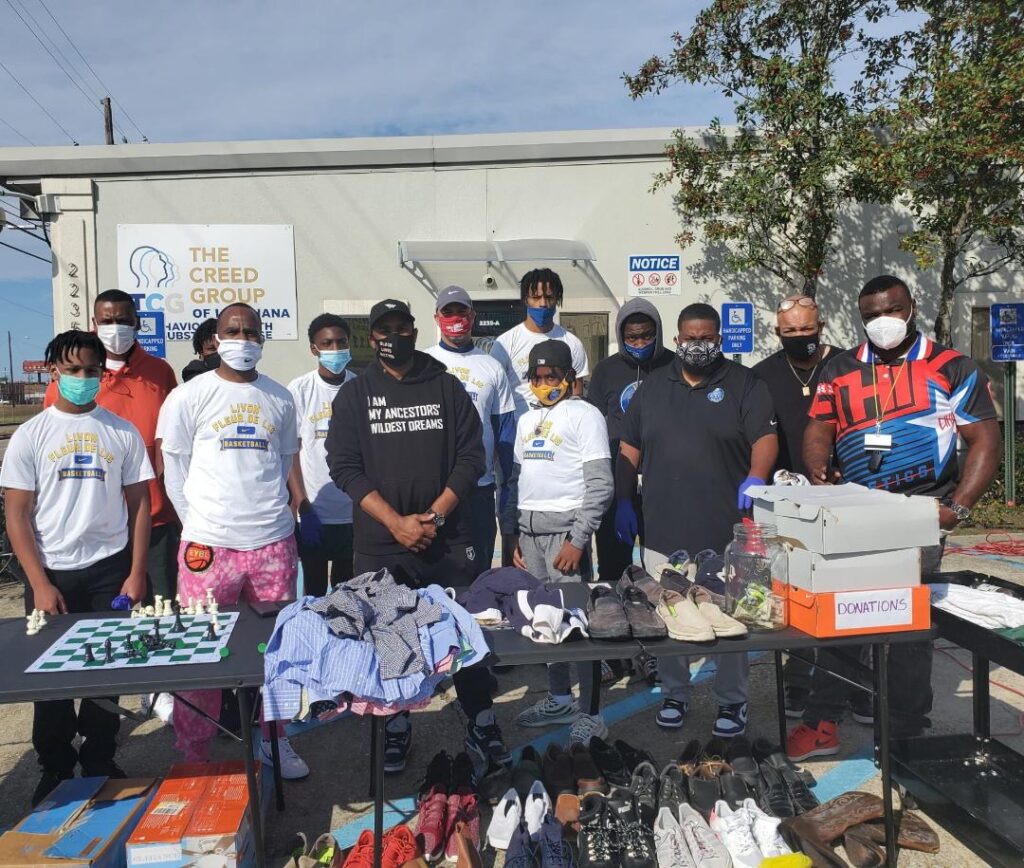
Right now, I serve as the program manager for gun-violence prevention for the office of the Mayor in New Orleans. I lead that organization. I’m responsible for The Key of Violence program in the city, which responds to all the shootings and violent activity. I have my own nonprofit, SharpMen Nola. I have a book coming out. I’m a Kellogg Fellow. So many opportunities have come, and once you wake up and get your mind right, you can do anything you need to do.
Zenger: I don’t even know if you want to or can talk about this, but a 65-year offer for a first offense? What did you do?
Young: Even before what I did, one of the things that led to it. … My brother got murdered. I was in college, and my brother got murdered — shot eight times in the head. The honest answer was, I just wanted to get revenge on the person that killed my brother. And in doing so, that led to other negative activity. I ended up actually getting arrested for armed robbery. And armed robbery at the time carried five to 99 years, which I was unaware of. So, the judge was like: “Hey, 65 years sounds like a good number for a first-time offender,” in spite of having no prior offenses. It opened my eyes to a whole new world within the criminal-justice system in Louisiana and how easily it is to just throw somebody away for one mistake.
And I brought that up to say, mental health, dealing with trauma, getting assistance when dealing with the loss of a family member, the loss of so much — it’s important that we actually take a gauge into our mental health. For me, that was just one of those things where it was a mental breakdown. Dealing with depression and grieving from losing my brother, it led to wrong decisions. I’m not trying to make an excuse for it, it’s just that trauma is real, and sometimes you need professional help to deal with it.
Zenger: We hear that more and more. PTSD is just not a term for former and current military members. Especially being from New Orleans, you experienced an abnormal amount of trauma and seeing things you shouldn’t see.
Young: It’s funny you said that because PTSD is not only people who were in the military, or people who have experienced trauma and violence in our neighborhoods. But also people who were incarcerated. After doing 13 years, to think you are about to come home and function normal, when you went in dealing with trauma, now you’re escalating that and putting that around other people. My therapist is my best friend. We’re cool. I just know for my well-being, I just can’t improve externally; I got to improve internally, too.
Just like I can get a trainer to get me fit physically, you can get a trainer to get fit mentally. We shouldn’t make that a stigma. If something is wrong, we should get help or counseling. I actually encourage it all the time.
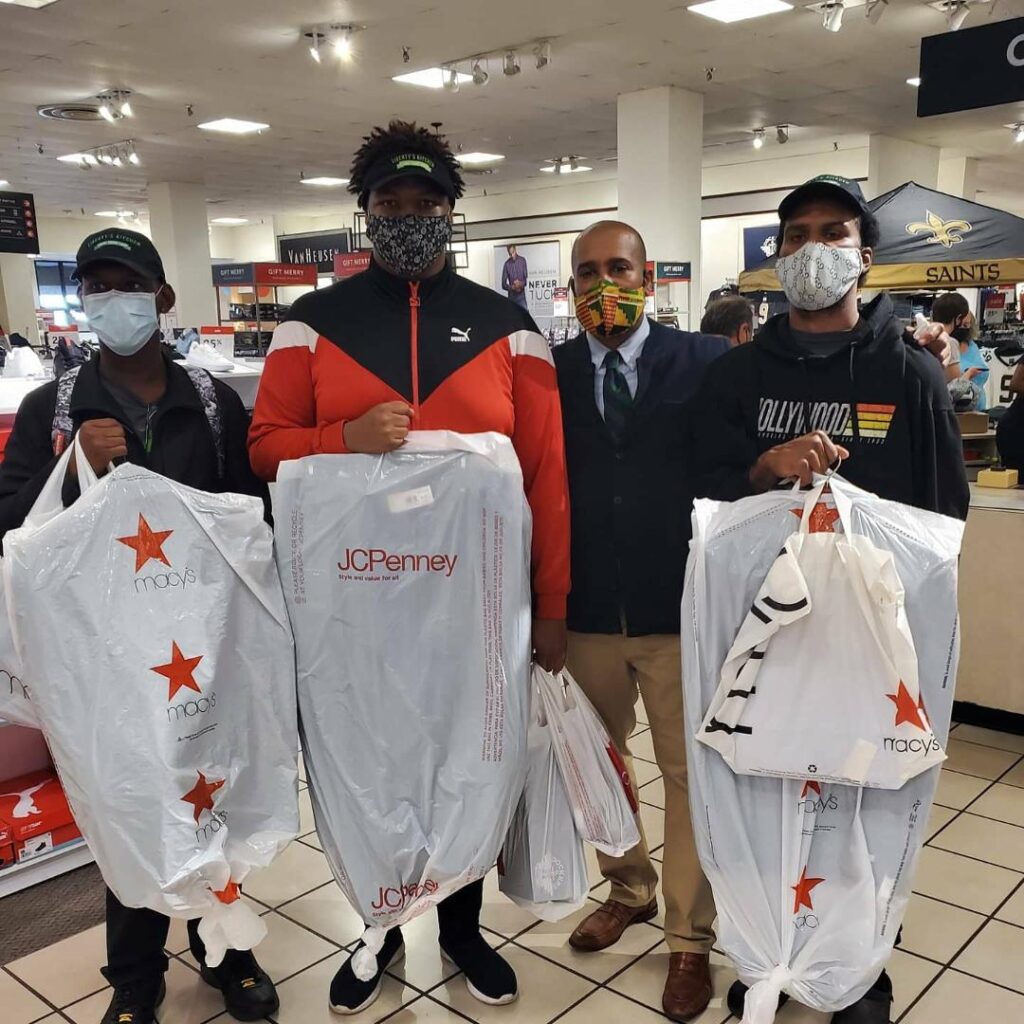
Zenger: Did you experience not having proper attire for job interviews when you were released?
Young: I came home with ’90s expectations in a 2000 world. The best example I like to give, we have these cellphone devices. Every year or every two years on these phones, they make updates and upgrades. And the device can improve. And we will tell people: “Hey, I’m going to upgrade my device.” We upgrade these devices, but personally we stay the same. So for me, it was a matter of I had to immediately update and upgrade the expectations of today. Even though I came home, I had an iPhone 1 mind frame, [but] I’m in an iPhone 10 world. That’s more or less what it was.
Before I went to prison, you had to get a resume. You can bring that into the store and get an application. Today, now you have to upload it and email. It was a whole different thing. It was about updating to the current thing and upgrading to the expectation. So, the expectation of the employer was: “Hey, you gotta look a certain way; you gotta be groomed a certain way, make sure certain things are visible.” And I think that’s from anything. It doesn’t have to be from incarceration. I’ve done training for guys who were formerly in the military, helping them make the transition back into civilian life. You gotta update and upgrade to the expectations.
Zenger: I love the “from homeless to hired” motto. That’s another situation where, no matter what their situation was, they’re trying to enter unfamiliar territory in trying to get back into the workforce.
Young: We see it now. COVID has made life-altering workplaces. Now, you’re going to have to update and upgrade to the expectations of an employer, based upon COVID restrictions. Some people are requiring masks; some places are requiring vaccinations. There are certain expectations around this virus that’s going to cause employers and employees to have to make some changes in how they operate on a day-to-day basis. You have to be a person willing to change and adapt to that environment for you to succeed. Many times, we don’t have the success that we want because people don’t want to make those changes.
Zenger: You recently sat on a panel for criminal-justice reform. Explain what that was and your participation.
Young: My biggest argument with criminal-justice reform is — a convicted felon trying to gain employment in Louisiana has 380 restrictions. What I mean by restrictions, if you want to get a certain license — barber, cosmetologist, getting in the film industry — because you have this previous conviction, you’re restricted from working in that area. The national average of restrictions is 123. Louisiana has 380 restrictions for people with convictions. That’s crazy.
When we talk about criminal-justice reform, especially in Louisiana, we first have to talk about removing some of the restrictions. If a man or a woman can’t come home — after serving their time, making their amends with the legal system — if they still have additional hurdles to try and provide for themselves, it’s a no-win situation. We talk about reforms; we also have to talk about those policies.
You can put people in transitional work, substance-abuse housing. You can do all of that, but with that stigma of just one conviction, you have to tend to 380 restrictions in Louisiana if you want to move to an apartment. You can get a welding degree, and welding certification, but you can’t work at a Shell plant.
You can do FEMA cleanup after a hurricane, but after your release, you can’t work for FEMA. You can work for FEMA during disaster-relief programs, cleaning up neighborhoods that flooded and things like that as an inmate, but once you’re released, and you want to get a job with FEMA you can’t. They just removed the restriction in California. Those guys who were fighting those fires were restricted from becoming firefighters once they were released from prison. But the whole time they were locked up, they could fight the fires. That’s crazy.
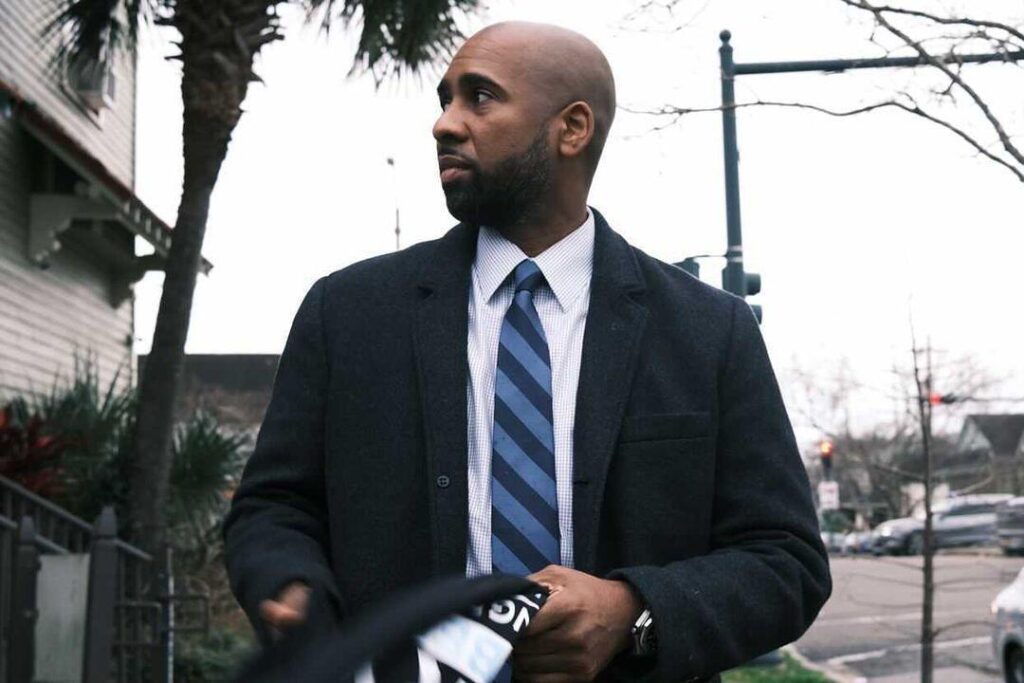
Zenger: Another motto of yours is you want to bridge the divide in our society. What does that mean?
Young: We always make a big fuss over the black-and-white divide, the racial divide. We get that. But there is also an economic disparity divide where [there are] people who really have and people who don’t have. At some point, we have to make a way to where people have an opportunity to acquire some type of economic development or economic stimulus. Right now, people are talking about “I’m getting stimulus checks from the government.” If you have a conviction, guess what? You’re not getting a stimulus check. If someone is already doing bad, and they haven’t been incarcerated, just imagine how hard that is for somebody who was formerly incarcerated, who can’t get economic stimulus, who has 380 restrictions to employment. What are my options?
In April, I will be releasing my book “A Way Up: Economic Development Post Incarceration,” in which I parallel prison and poverty … and show that the majority of people who are incarcerated is because of poverty. It’s nationwide. Poverty has been the leading filler for incarceration. But when you’re released, you go back into society below poverty. You get a job, which brings you back to poverty, and that poverty keeps you in that perpetual cycle of going in and out of prison. So in order for you to be successful post-incarceration, you have to find up and not just a way out. And that way up, is a way up out of poverty. If you find anybody that was incarcerated, and they’re doing well, they are living above the poverty line.
Zenger: How can people reach you?
Young: I can always be reached at raiseyour_bar on Instagram, SharpMen Nola. It’s so important that we work together as men, as brothers, as a people to really unite and overcome all the injustices we see. We can blame another person or another race, but if we have the opportunity to do something and work together, then that responsibility falls on us. If we don’t do it, then that blame falls on us as well.
(Edited by Stan Chrapowicki and Fern Siegel)
The post Patrick Young Is Well-Suited To Help Those In Need Get A Second Chance appeared first on Zenger News.
